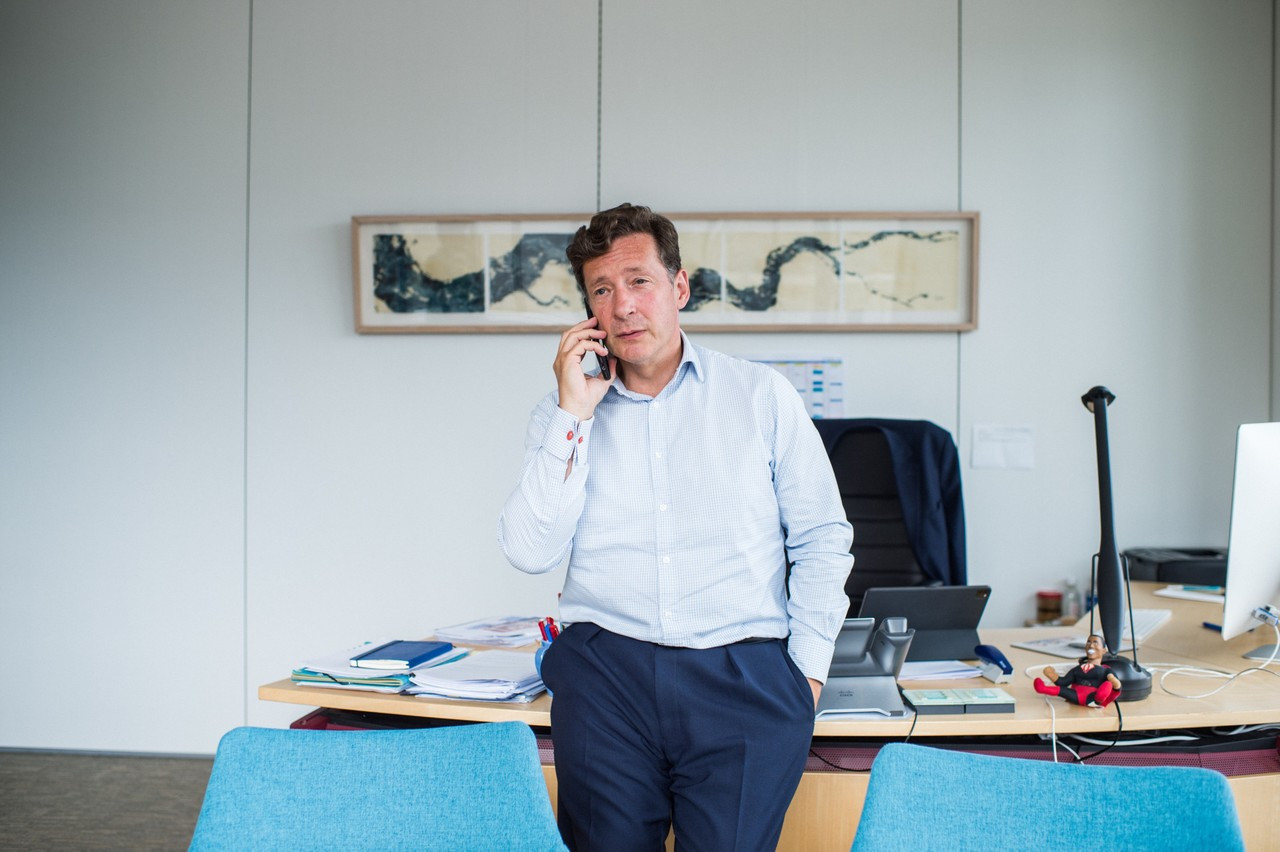Jean-Michel Lalieu: What are your first impressions of these new revelations concerning Luxembourg?
Nicolas Mackel: My first impression is that, under the guise of wanting to show that they have done an enormous amount of background work, these media are giving impressions and, above all, heated prejudices about Luxembourg. The Belgian daily newspaper Le Soir at least has the honesty to recall that Luxembourg was one of the first countries to have vigorously implemented European regulations to create a register of economic beneficiaries, in a more transparent and accessible way than others. In the end, these revelations were made possible by the transparency that Luxembourg implemented.
Was Luxembourg maybe too transparent?
They themselves explain that they were able to access a series of documents. So these documents must have been accessible. We are accused of preaching transparency, but not practising it. If we did not do that, they would not have had access to that information. Some French or German residents are quoted who admit to having a company in Luxembourg. But they also recognise that they did not get a tax advantage because of the existence of this Luxembourg company. So what is the problem? Luxembourg is an international platform that is successful for a number of reasons, but as the articles themselves say, not for tax reasons. Information about these companies is shared with authorities in other countries.
The rules of the game have changed a lot in recent years...
Indeed. Criticism of Luxembourg should be addressed on a general european or international scale. But we did what we had to do. Today, neither the OECD nor the European Commission find fault with our country’s framework or practice. If something is to be criticized, it may be an inadequate international framework, but not the practice of a country that respects that framework. That is another debate.
These surveys point to the number of foreign companies present in Luxembourg...
Over the past few decades, Luxembourg has established itself as a leading financial centre within the European Union and a hub for international investment. However, the structuring of international investments requires the creation of companies. Any investment in an international project goes through a societal structure for a whole series of reasons. But when one understands how this economic logic works, one also knows that we cannot be blamed for that. We are at the forefront of the financial services [sector], but the regulatory framework for taxation and transparency is properly applied.
Are these accusations a hard pill to swallow?
We will have to see the exact scale of it. But what makes me unhappy is that it is a mixture of populism, ignorance and malice. Many of the arguments and explanations given by the Luxembourg authorities were either ignored or caricatured. So, no, it’s not a shock. We are aware of certain media’s fixation with the grand duchy.
This is the third attack in six years. Does it cause damage in terms of reputation?
Yes certainly. But that is the authors’ intention. We will once again have to make extra efforts to explain our activities and convince of their merits.
Should some reforms have been implemented sooner?
In my opinion, Luxembourg is in the crosshairs. It is possible to respond to every criticism in these articles. The authorities did, but as I said, it was either ignored or caricatured.
The term tax haven is being used again once again…
But how can we be accused of being a tax haven? All tax information is shared with other countries. If someone has been able to obtain a particularly low rate, it is not Luxembourg law which must be questioned, it is linked to the interaction of international regulations. For there to be a tax haven, there must be opacity, a lack of taxation and international cooperation. None of these criteria can be applied in Luxembourg. But in people’s minds, how do you explain the success of this little country if it’s not a tax haven...
This article was originally published in French on Paperjam.lu and has been translated and edited for Delano.
